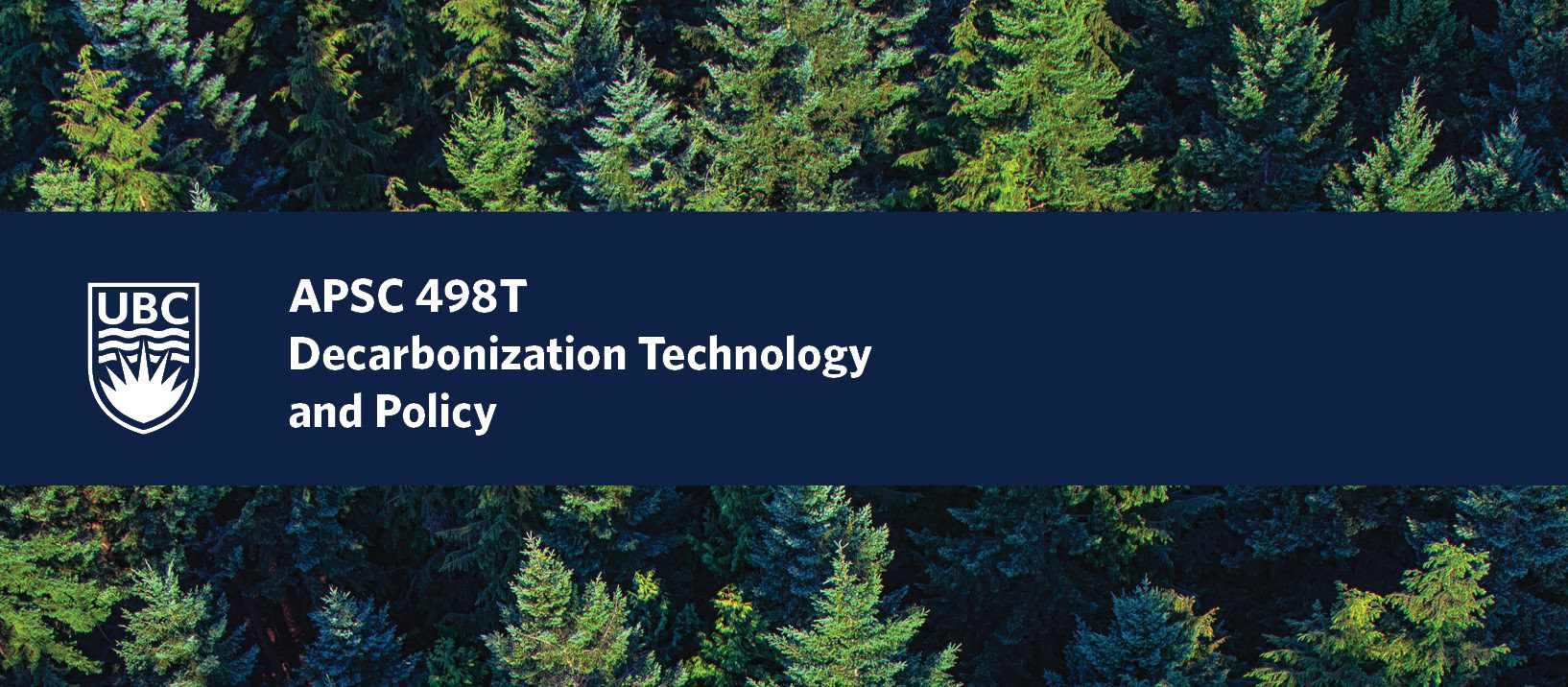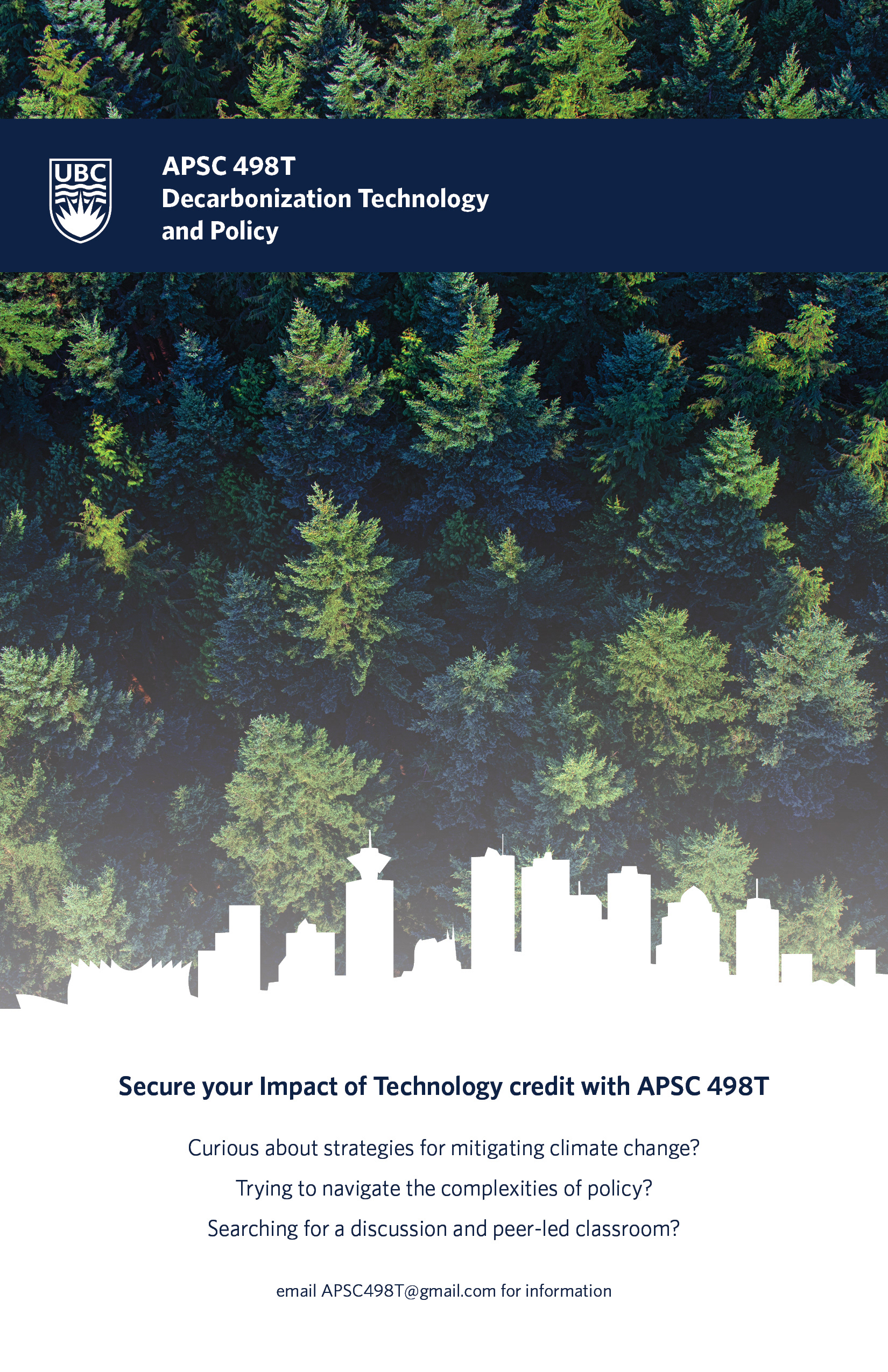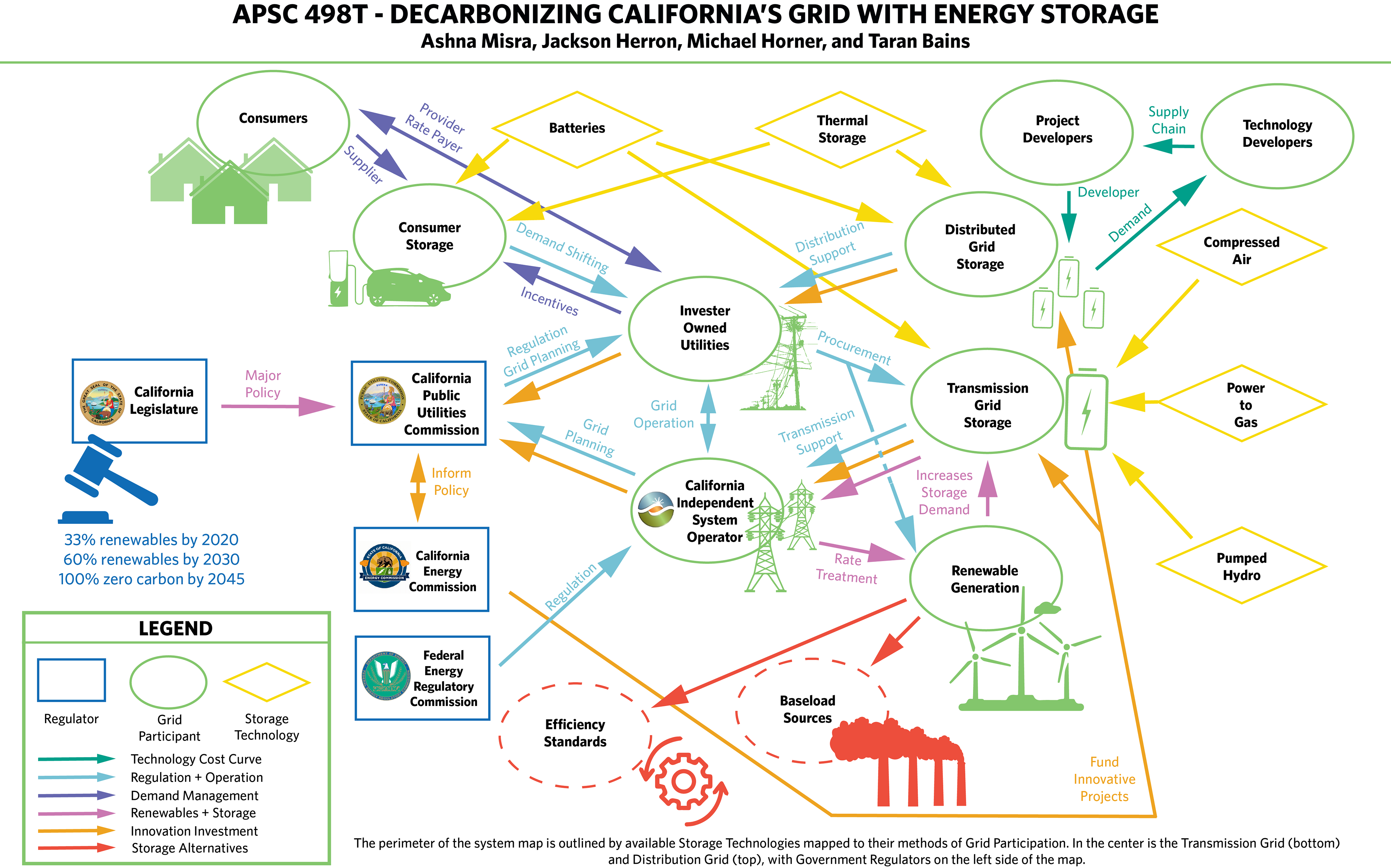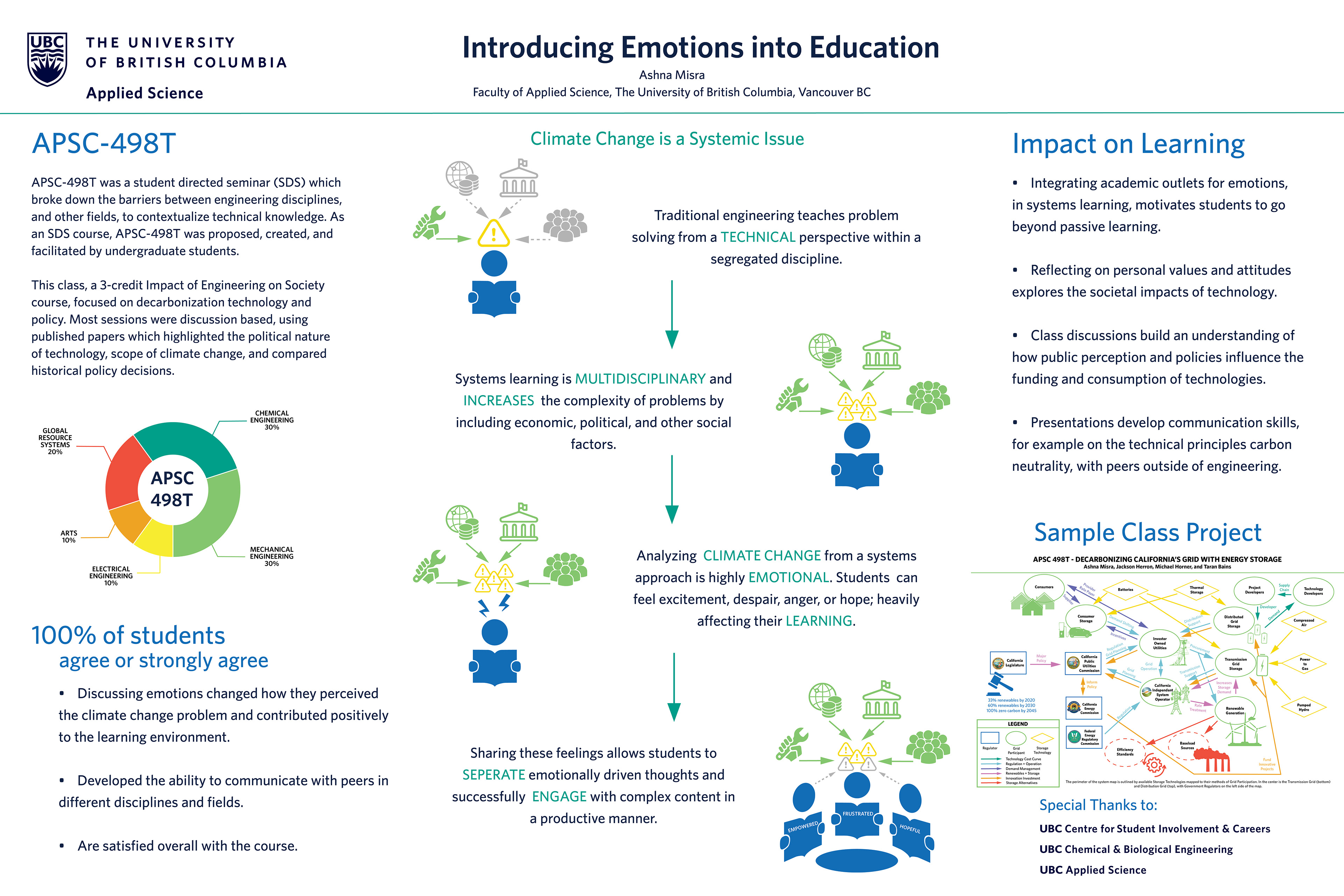APSC-498T was a Student Directed Seminar (SDS) created and lead by Ashna Misra and Jackson Herron. This was a 3-credit course for applied science students that took a holistic approach to decarbonization technologies. As an SDS the class was discussion based and peer-led. Find out more information about APSC-498T and its syllabus at the link below:

Advertisements for APSC-498T (2018)

During this endeavor, I gained a new appreciation for the work professors must do to market a course, create concrete learning objectives, measurable achievements, and effectively deliver content. Marking schemes surprised me the most. I did not realize how difficult it is to create a rubric which is easy to understand and objective for marking. Many many thanks to our faculty advisor Dr. Amanda Giang who spent countless hours with Jackson and I on course planning and project design.

Final Project Systems Map (2019)
During the semester discussions kept returning to a reflection of our emotions. When faced with the question "How do you feel about the potential for decarbonization?" - people's answers range from "hopeful" to "angry" and everything in between. It became apparent that decarbonization discussions had personal implications our own lives. It is hard to philosophize a transition from fossil fuels when you have family working in the Alberta oil sands. Similarly it can be near impossible to say "I think it will be okay" when you know governments fail to meet their (insufficient) GHG targets proclaimed in the Paris Climate Agreement.
This is a stark contrast to the typical conversation/topics in an engineering classroom. Traditional engineering is about relatively objective truths. How does heat flow? Should this system be feedback or feed-forward control? Yet academia, as it should, is moving toward multidisciplinary learning and systems thinking.
My belief is the following: As we break down the academic silos within engineering and other disciplines it becomes increasingly important to acknowledge and reflect on our emotions. Not only will this develop a personal relationship to content and create an active learning environment. It will also built better communication skills along with an understanding of the influence of public perception on the consumption and policies of new technologies.
With the encouragement of Dr. Gabriel Potvin (Chemical and Biological Engineering) and the UBC Centre for Students Involvement & Careers I decided to present this pedagogy at the 2019 Canadian Engineering Education Conference. My presentation and poster (below) took first place in the Student Competition and the experience left me with a renewed faith in engineering education. In the future I hope to reconnect with the teaching aspect of engineering in new and exciting ways!
